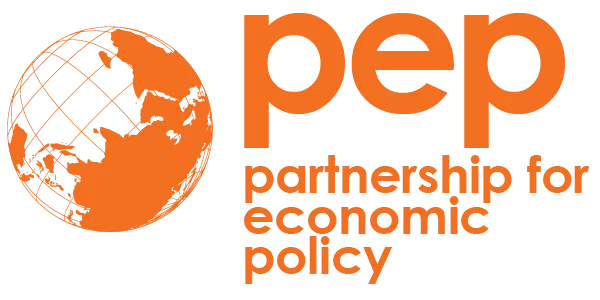In collaboration with Université Laval in Canada, the Partnership for Economic Policy (PEP) is offering three online distance-learning courses from January 14 to April 12, 2019. The three courses are:
Course 1: Policy Impact Analysis
Course 2: Computable General Equilibrium Modelling
Course 3: Measuring and Alleviating Poverty and Inequality
On successful completion of each course, Université Laval will provide students with an official transcript. Université Laval will award a graduate microprogram certificate to students who complete all three courses within a maximum of three years. We fully expect to offer these courses again in 2020 and hopefully many more years to come, but have not yet received formal approval from Université Laval for this.
Course content
Course 1: Policy Impact Analysis
Policy impact analysis is used to determine which policies, interventions and programs work, for whom, and in what circumstances. This course provides practical guidelines for designing and implementing various types of experimental and non-experimental techniques, including how to select the appropriate technique for each context. This course takes an applied, non-technical approach. Participants should have a working knowledge of basic statistics, particularly key concepts such as regression analysis. View the draft course syllabus (subject to change).
Course 2: Computable General Equilibrium Modelling
Computable general equilibrium models are powerful analytical tools used widely in both developing and developed countries. This course introduces all aspects of this type of modeling, both theoretical and applied. At the end of this course, participants will be able to develop, program and use a computable general equilibrium model. View the draft course syllabus (subject to change).
Course 3: Measuring and Alleviating Poverty and Inequality
Poverty and Inequality reduction is a central objective of economic policies in both developed and developing countries. This course introduces the main theoretical and empirical aspects of the economic analysis of poverty and inequality: distributive analysis, poverty and inequality measures and profiles, multidimensional poverty, robustness, pro-poor growth and policies, poverty alleviation, targeting criteria and the distributive effects of price changes and tax reforms. Each theoretical class is accompanied with practices on real data. Participants should have a working knowledge of basic statistics. View the draft course syllabus (subject to change).
Registration
Registration for the 2019 courses must be completed by October 31, 2018. The number of places is limited and candidates will be selected on the basis of their application form and CV. Decisions will be communicated by November 14, 2018, and selected participants will be expected to pay their course fees in full by November 28, 2018, failing which their spot can be offered to candidates on the waiting list. Instructions for payment (by bank transfer) will be provided with acceptance letters on November 14, 2018.
The course fees are:
- $US 600 per course for participants who are nationals and residents of a developing country
- $US 1200 per course for all other participants
To apply to participate in the course:
- Register on the PEP web site and post your CV in your profile
- Complete and send the application form to info@pep-net.org with the subject line “PEP online courses”
To do so:- Download the application form
- Complete all sections
- Please note, for your application to be considered, you must respond “yes” to the question “If selected, I will pay in full the advertised course fees within two weeks of the date of my acceptance letter”
- Save the completed form to your computer
- Send your completed application via email to info@pep-net.org with the subject line “PEP online courses”
